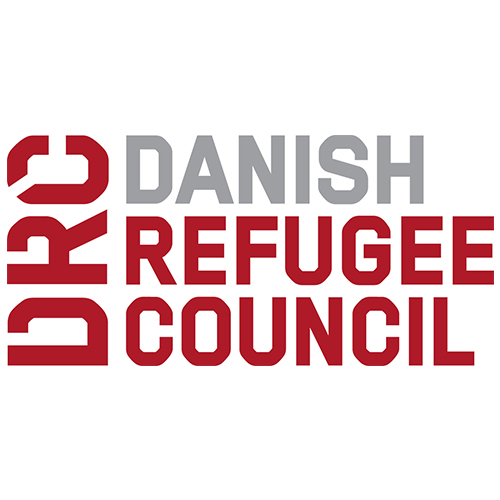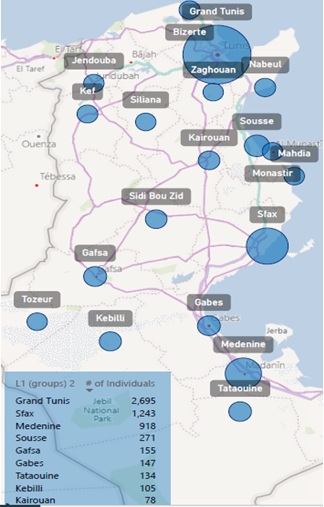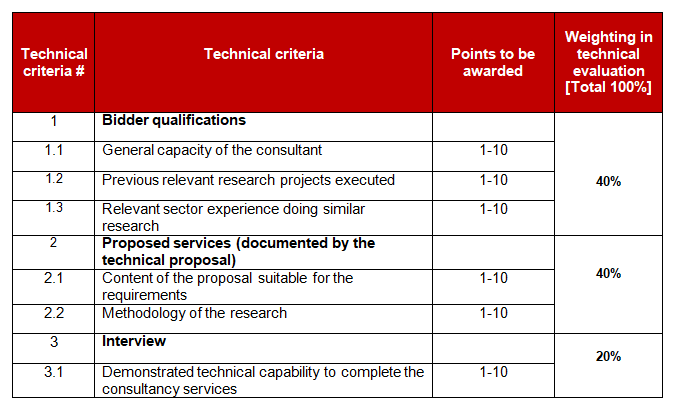Appel à consultant – DRC عودة إلى الفرص
Danish Refugee Council
يطلق Appel à consultantsانتهاء الصلاحية
19 جويلية 2021 Il y a 5 ans
شروط الترشّح
أنقر هنا للاطّلاع على شروط الترشّحشارك الفرصة على
تفاصيل الفرصة
Terms of Reference
Assessment and Design of Innovative Program Concepts
Youth Empowerment in Tunisia
Introduction
Danish Refugee Council (DRC) is an international non-governmental organization which promotes and supports durable solutions to the problems faced by vulnerable people affected by conflict and instability all over the world. Danish Demining Group (DDG) is the branch of DRC that focuses on human security programming. DRC focuses on human security and programming and strives to identify safety and security needs from the perspective of those living with conflict and to help them find non-violent solutions. These go beyond traditional mine action activities to include Violence Reduction (VR). VR programming specifically seeks to engage communities in developing durable solutions to local safety and security challenges.
Background
Founded in 1956, the Danish Refugee Council (DRC) is Denmark’s largest, and a leading international NGO – one of the few with a specific expertise in forced displacement. In 40 countries 9,000 employees protect, advocate and build sustainable futures for refugees and other displacement affected people and communities.
DRC operated in Tunisia from 2011 to 2013 to provide direct humanitarian assistance to refugees fleeing the Libyan crisis in Shousha camp near Ben Guerdane and the cross-border entry point of Ras Jedir. Since that time, the organization has been able to generate visibility and credibility among local communities and develop a sound understanding of the local context. DRC remained present in southeast Tunisia, enhancing community security and resilience in the border-towns of Ben Guerdane and Dehiba starting from 2014 and in March 2018, extended its current intervention to the Libyan border-towns of Zuwara, Nalut, and Wazin with a similar approach. DRC has established Conflict Management and Analysis Committees (CMACs) in each of the 5 locations where it intervenes and supports the CMACs to conduct regular analysis on conflict dynamics and to design and implement local actions that can tangibly affect change. Our programming aims at addressing border management holistically, investing in analyzing the full system of dynamics that cause tension within and across communities and fuel insecurity and illicit trade, and more often affect livelihood opportunities. The intervention aims to empower border communities to address the challenges associated with the Tunisian-Libyan border, given the assumption that local actors are best placed to address drivers of violence in their environments and that as such they contribute to long-term objectives of social inclusion, economic development, and democratic governance that are essential for undermining the root causes of marginalization, social exclusion, economic disparities and violent extremism. Communities along the border are highly dependent on cross border trading and related economic activities as sources of income and for their livelihoods. Trade is not however the only factor that affects livelihoods in these communities; security and safety threats also play a central role in the stability of border communities and in their capacity to access livelihood opportunities. This is particularly relevant for vulnerable community groups such as women and youth.
Through the past 3 years of implementation DRC has found that a growing number of disillusioned youth consider border smuggling as their only valid alternative to unemployment. Hard security measures and penalties for smuggling threaten their livelihoods, consequently resulting in resorting to violent extremism and dangerous migration patterns as measures of last resort. These findings confirm the conclusions from a DRC-DDG study undertaken in 2017 stating that marginalization, poverty, unemployment, family and social pressure, and lack of supporting networks are among the strongest push factors that can lead vulnerable youth to resort to dangerous emigration and radicalization[1]. The economic hardships faced by Tunisians during the last decade and the absence of a clear vision and a predictable future at the political level have made Tunisians from all social and economic backgrounds increasingly tempted to take the “death boats” across the Mediterranean to seek a better future in Europe.
DRC is therefore in the process of adjusting its programming to focus more prominently on Tunisian and Migrant Youth in the country.
Context
Young people in Tunisia are essential actors in the success of the country’s ongoing democratic transition and social development. They initiated the Jasmine revolution in January 2011 in the Southern city of Sidi Bouzid because of lack of concrete livelihood opportunities expressing their eagerness for change. Unfortunately, 10 years after a revolution generally considered outside of the country as successful, Tunisian youth continue to suffer from the lack of concrete opportunities to be actors of their own social and economic development.
DRC has conducted extensive consultations with youth in South Tunisia, an area that suffers from increased socio-economic issues and amplified by the ongoing Covid19 pandemic. These Southern border regions count one in three young Tunisians under or unemployed, and, notably, one out of every two young women belong to the NEET category – young people Not in Education, Employment or Training. Even youth with the highest education levels are confront with a labor market unsuited to meet their composite skillset, resulting in under or unemployment rates almost twice as high as the national rate, comprising 28.2% of the total active labor force[2].
Young people believe corruption and regional marginalization are the all-embracing underlying causes for high levels of unemployment in the country are corruption alongside regional marginalization. Youth still feel discouraged due to corruption and nepotism, believing that the latter is the most influential factor in getting a job rather than education. In addition, the Tunisian centralized system and governmental institutions are perceived more like barriers than a boost for young people[3]. These obstacles seem to be exacerbated for young people in borderlands areas, such as Dehiba and Ben Guerdane, as they are also characterized by strong feelings of marginalization and participation in smuggling activities.
The Mixed Migration Centre (MMC) is a research institute that sits within the DRC and independently collects and analyzes high-quality data with people on the move. MMC states in its Q3 2020 Quarterly Mixed Migration Update that “Along the Central Mediterranean Route (CMR), continuing a trend observed in Q2, Italy saw an increase in arrivals, with UNHCR reporting 16,777 arrivals from July – September 2020, up from 4,854 arrivals reported over the same period last year. North Africa remained a top region of origin of people on the move along the CMR, with Tunisians (the most common nationality to arrive in Italy) representing 42% of arrivals, followed by Algerians (3rd; 5%), Sudanese (6th; 3%), Moroccans (7th; 3%) and Egyptians (9th; 3%) from January – September 2020. The number of Tunisian arrivals in Italy from January – August 2020 went up to 9,884 from 730 in 2019, representing the highest number of arrivals from the country since 2011”.
[1] DDG, Between risk and resilience: Youth experiences in Southeast Tunisia, Ben Guerdane and Dehiba, May 2017.
Compounding the issues plaguing Tunisian youth and society are the high rates of displaced migrants inside Tunisia. Current estimates suggest there are currently approximately 75,000 migrants from sub-Saharan Africa (SSA) living in Tunisia. According to the U.S. Department of State’s 2020 Trafficking in Persons Report: Tunisia, more than half of the 1,313 identified victims of trafficking between April 2019 and February 2020 were women and children, many of whom had experienced economic exploitation and primarily were from Cote d’Ivoire.
Despite the estimated migrant population in Tunisia, UNHCR reports just under 5,700 registered refugees and asylum seekers within Tunisia, although largely composed of Syrians, and thus not counted within estimates of the SSA migrant population. In UNHCR’s most current update, children account for nearly 27% of the refugees and asylum seekers registered within the country (1,457 children of 5,406 total refugees and asylum seekers). Stakeholders involved in migration on the European side of the Mediterranean have suggested that the route from Tunisia to European countries has become increasingly favored by refugees and migrants. Based on official figures relayed by the Government, Grand Tunis houses almost 2,700 migrants, with the Sfax area housing the second largest, and Medenine housing the third largest displaced population of almost 1,000 migrants. The number of migrants living in Medenine has also increased during the first and second wave of the pandemic, since more informal jobs (such as daily works in construction sites or restaurants) were opened to migrants in the south due to the unfavorable nature off these roles for some Tunisians.
Scope of services
DRC wishes to contract the services of an expert consultant to scope and design concepts that will induce a multi-stakeholder approach to amplifying opportunities for Tunisian youth and migrants focusing on the vulnerable border communities in the South as well as the urban and migration hubs of Sfax and Tunis. Specifically, three deliverables are requested:
- Stakeholder mapping: Identification and analysis of stakeholders and efforts with focus on Tunisian and Migrant youth – should be presented to DRC, based on a review of present initiatives and programs from a multi-stakeholder perspective including key stakeholders, programs, initiatives, policy efforts, networks and potential donors.
- Youth Consultation workshops – it is essential for DRC’s youth programming that future beneficiaries are at the heart of its strategy and that all activities proposed are in line with clearly expressed needs and expectations.
- Development of concepts and approaches – based on above mentioned deliverables, a minimum of three conceptual/programmatic approaches, in line with DRC’s protection and livelihood strategic focus, should be developed through a consultative process involving DRC key staff in at country, regional and HQ level and potentially from selected local partner organizations.
Duration
DRC is looking to contract a consultant that meets below requirements as soon as possible. The deliverables of these terms are due a maximum of 45 days from the starting date.
Deliverables, roles and responsibilities
The consultant will report to the Country Representative of DRC in Tunisia and will work closely with the DRC Global Advisor for Youth in Displacement.
Further details on deliverables:
- Stakeholder mapping: This document should be divided per location (Tunis, Sfax, Border Area) and highlight potential local partners as well as highlight key dynamics between relevant stakeholders working with Tunisian and Migrant Youth. The document should also focus on mapping potential donors for future youth program funding opportunities.
- Youth Consultation workshops: In person and/or online design workshop(s) should be organized with young Tunisian and migrants. Learnings from the stakeholder mapping should ensure young leaders and influencers are consulted and provide their inputs in regard to programmatic needs and priorities. Focus group discussions and Key Informant interviews should also be considered to compliment and finetune propositions in line with DRC’s protection and livelihood sectoral focus. It will be essential to ensure that a representative sample of Tunisian and migrant youth are consulted for this output.
- Development of concepts and approaches: A minimum of three, geographically focused CNs (covering the northern, central and southern regions of the country) should be developed in line with findings identified in the stakeholder mapping (including existing funding priorities and opportunities) and based on priorities expressed by the young Tunisian and migrants consulted during the design workshop and follow up KII and FGDs. The CN developed are expected to be innovative and tailored to young people they will aim to serve whilst also focusing on the protection and livelihood programmatic priorities of DRC.
Proposal Submission
Interested consultants must submit as a minimum:
- Annex A.1 Technical offer which should include the following:
- Two-page document outlining strategy and technical approach to the TOR
- Timeline
- Annex A.2 Financial offer: with a separate financing proposal in TUN with a breakdown of budget covering consultancy fees and all related expenses to implement the activities of the consultancy including travel and transportation, accommodation and all logistical requirements (emphasis on COVID-19 restrictions and feasibility).
- Annex B Tender and Contract Award Acknowledgement Certificate
- Annex C: DRC General Conditions of Contract signed
- Annex D DRC Supplier Code of Conduct
- Annex E Supplier Profile and Registration Form completed and signed:
- Company profile (if applicable)
- One-page document showing portfolio of previous consultancy similar or other relevant experience.
- References from at least one organization that previously contracted the consultant.
- CV(s) of consultant/consultancy team
All received bids meeting the minimum requirements will be assessed for profile and qualifications, technical approach, and similar experience. Bids will be scored according to the criteria below:
The financial proposal must specify the following:
- The costs for the services requested in the deliverables table above, it could be per day, per deliverable, or lump sum.
- The Costs should be provided in TND
- The Consultant shall be wholly responsible for all taxes, national insurance or other contributions, which are or may be payable out of, or, as result of the receipt of, any fees or other monies paid or payable in connection with this Agreement. The Consultant shall accordingly indemnify and hold DRC harmless against all taxes (including VAT), national insurance or other contributions, costs, claims, penalties, interest, expenses or proceedings arising out of or in connection with such taxes and contributions.
- The Consultant should notify DRC of his/her registration for V.A.T and provides V.A.T invoices in respect of the Consultancy services.
Validity of Offer
Bid’s must be valid for a minimum of 30 days from the date of the RFP closing date. Bids not meeting the Bid Validity Period may be disqualified. DRC will attempt to notify all suppliers of the outcome of their proposals as soon as possible after evaluation.
Evaluation of Bids
All Bids received and accepted will be evaluated based on the criteria detailed above
Note: Shortlisted suppliers complying the technical requirements may be asked for an interview with the committee.
Contract Award
Under the ‘best value for money’ principle, DRC will award the contract(s) (DRC Purchase Requisition or Service Contract) to the ‘lowest responsive bid’ except where other considerations are warranted. These other considerations can be – total cost of ownership; cost of on-going consumables; technical proposal, price vs warranty; quality vs price etc.
RFP Enquires
All enquires and questions should be addressed to the email given in the RFP Detail’s section! All Q&A’s will be shared with all invited suppliers.
Under DRC’s Anticorruption Policy, Bidders shall observe the highest standard of ethics during the procurement and execution of such contracts. DRC will reject a Bid if it determines that the Bidder recommended for award, has engaged in corrupt, fraudulent, collusive, or coercive practices in competing for, or in executing, the Contract.
Deliverables, timeline & payment (tentative)
شروط الترشّح
- The successful candidate must be able to work independently within DRC’s structure to deliver the required outputs within a tight deadline and with a large and complex interface with a variety of internal and external stakeholders.
- Background in social science, international development, business development, or similar.
- Preferably Master level with expertise in both quantitative and quality research
- Understanding of the Tunisian context related to the empowerment and economic/livelihood opportunities for youth
- Understanding of multi-stakeholder approaches (for example partnership driven programming) used in similar settings and/or for similar social sector objectives
- Proven track record in conducting similar studies and design of conceptual programmatic opportunities
- Experience in/good knowledge of INGO led Economic Recovery and Protection programming
- Ability to structure complex insights into written and visual products that bring out key features and enable decision making
- Ability to coordinate and bring together a diverse group of stakeholders and mobilize around a shared vision
- Fluency in English and Arabic required.
انتهت صلوحية الفرصة
للأسف هذه الفرصة لم تعد موجودة على جمعيتي . زوروا بانتظام قسم الفرص لتجنب افلات الفرص اللاحقة
تابع "جمعيتي" على لينكد إن
احصلوا على جمعيتي موبايل من الآن

Appel à consultants منشور على "جمعيتي" في 6 juillet 2021
إكتشف المزيد من الفرص على "جمعيتي" عبر النّقر على هذا الرّابط.




